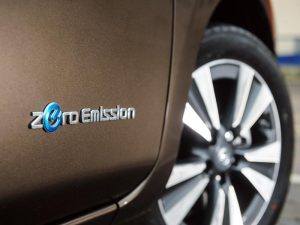Venson launches guide to help fleets switch to electric
Venson Automotive Solutions has published a free Plug-In Vehicle Guide answering key questions asked by drivers about EVs, which they believe will aid fleets considering the move to plug-in cars and becoming greener fleets.

Venson launches guide to help fleets switch to electric
Fleet managers looking to control their costs should turn to electric vehicles (EV) to deliver the savings they need, urges Venson Automotive Solutions, who has released a guide.
The guide aims to dispel common misconception, such as plug-in hybrid vehicles offer poor fuel economy whereas driving style, road conditions and many other factors influence this, says Venson.
For example, a Toyota Prius Plug-In entered in last year’s Fleet World-organised MPG Marathon returned 109.14 mpg over the 387-mile route.
According to Venson, using the UK’s current average fuel price of £5.20 per gallon, that works out as just £14.63 to drive from the equivalent distance of London to Glasgow in the Prius Plug-In.
Simon Staton, Client Management Director of Venson Automotive Solutions, explained: “With London potentially due to introduce an ultra-low emission zone in September 2019 and towns and cities across England considering implementing clean air zones to improve air quality, plug-in vehicles could come into their own.”
“EVs and PHEVs are already exempt from the London Congestion Charge and they will also be able to drive in clean air zones without paying any charges, making them a smart choice for city orientated company car drivers.”
Venson state that company car purchases of electric vehicles have major benefit-in-kind tax savings, when compared to petrol and diesel vehicles, with employers making Class 1A National Insurance savings. First year and standard rate VED is £0 for battery EVs (if the car costs more than £40,000, VED is £310 a year in years two to six). PHEVs also benefit from savings versus non-electrified petrol and diesel cars, with capital allowance savings for employers in addition to the fuel savings previously highlighted.
Staton continues, “The motoring tax regime is designed to favour EVs and PHEVs because it is based around CO2 emissions and plug-in cars are either zero emission or have very low emissions. Anyone choosing an EV as a company car will gain major benefit-in-kind tax savings compared to petrol and diesel vehicles. In addition, employers will make Class 1A National Insurance savings, as well as capital allowance savings for employers.”
“Venson published its Plug-In Guide to help fleets and employees decide if an electric vehicle is right for them. Fleet managers and company car drivers should take time to look at the potential savings to be made from making the switch to electric.”
The Plug-in Van Grant offers 20% off the total cost of a vehicle up to a maximum of £8,000, while the Plug-in Car Grant offers £4,500 for a Category 1 model and £2,500 for Category 2 and 3 models.
EVfleetPlug-In Vehicle GuideVensonVenson Automotive Solutions





